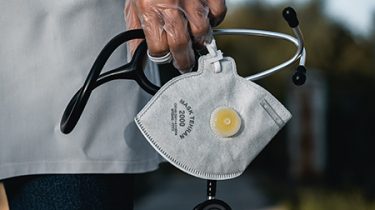Driving a hard bargain – How COVID-19 has changed things

Whether we like it or know it, the COVID-19 pandemic has changed us: how we live and how we work. This means it has also changed the way we bargain our collective agreements and deal with grievances and arbitrations. The “new normal” has changed to “The Normal” as 2021 approaches. Most of us have already adopted videoconferencing as part of our lives.
Employers have re-evaluated their need for a full complement of workers and are using it as leverage in negotiations and discipline. Threats of shutdowns or severe cutbacks are already being used to “loosen” collective agreements.
Working from home generally also means you work more hours for the same wages. How do we deal with health and safety issues related to be at our computers for more hours than we are used to? How do we deal with the stress from trying to juggle home and work from the same workspace?
Unions must think deeply about taking care of our members while standing firm in the face of a threatened shutdown or a severe cutback in the daily operations of any workplace we represent. When employers talk about reduced production requirements, how do we compel them to open their books and show us proof? We must find proof of their claim of the necessity to change operational procedures and production output.
Threats to the economy are real. Air transportation has suffered a loss of about 90% of air travel. This is a clear danger to the livelihoods of tens of thousands of IAM members and their families.
Health professionals are seeing reduced patient loads because of physical distancing protocols, reducing expenses for employers. Can unions translate those savings into improved contract language and working conditions?
Solidarity is the greatest asset we have, if we can build it. The rapidly-changing work environments mean we must be in constant communication with our members – sharing information as well as understanding the implications of what our members are telling us. Now is the time to develop activists and give them the responsibility of building a team!
Political leaders have already gained publicity through insisting that workers make sacrifices in order to preserve their jobs – and the economy.
Political action is now more important than ever. We must speak loudly to our politicians and bring our members to those meetings – virtually, or in person. Our large numbers matter in these meetings.
While workers’ stories have been in the news along with some temporary remedies, those solutions are not long-term. Gains for frontline workers have been short-lived and serve as a warning that workers are treated merely as political tools or pawns.
Our greatest strength has always been collective action. COVID-19 gives us a unique opportunity to do that. In doing so, we can change the lives of IAM members – and of all workers!
Frank Saptel
Communications Representative
IAM Canada
